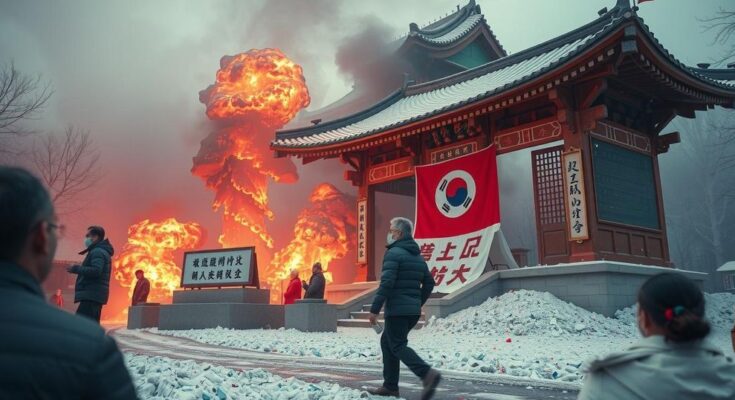The Democratic Party of South Korea has decided against impeaching Prime Minister Han Duck-soo, who became acting president following President Yoon Suk Yeol’s impeachment due to a declaration of martial law. This announcement by party leader Lee Jae-myung comes amidst significant political turbulence in the nation, marking a pivotal moment for South Korea’s political landscape as it confronts ongoing unrest and leadership challenges.
The Democratic Party of South Korea has opted not to pursue the impeachment of Prime Minister Han Duck-soo, who assumed the role of acting president following the impeachment of President Yoon Suk Yeol. This decision, unveiled by party leader Lee Jae-myung amidst ongoing political unrest, underscores the Democratic Party’s strategy in navigating the turbulent political landscape following President Yoon’s contentious declaration of martial law on December 3.
Prime Minister Han has stepped into a leadership vacuum subsequent to President Yoon’s controversial actions and subsequent removal from office. The political situation in South Korea remains fraught with challenges, as citizens grapple with issues of governance and leadership stability amid national discontent. The party’s rejection of impeachment indicates a tactical decision to maintain focus on broader political ramifications rather than exacerbating existing tensions within the government.
The situation in South Korea arose from President Yoon Suk Yeol’s declaration of martial law, which ignited significant debate and ultimately led to his impeachment. As the Prime Minister, Han Duck-soo has taken on an acting presidential role during this tumultuous period. The Democratic Party’s decision to refrain from impeachment reflects both the complexities of this political environment and the logistical considerations of leadership during a time of national unrest. Political unrest in South Korea has gathered momentum, reflecting broader societal issues concerning governance and public trust in leadership. Amidst this backdrop, the Democratic Party’s strategic choices are critical in shaping the future political landscape of the nation.
The Democratic Party of South Korea’s decision not to impeach Prime Minister Han Duck-soo highlights the intricate dynamics at play within the nation’s political sphere. As South Korea navigates the aftermath of President Yoon Suk Yeol’s impeachment, the potential consequences of this decision may resonate through the political landscape, affecting public trust and governance moving forward. Taking stock of these developments will be vital for both political leaders and citizens alike as they face the complexities intertwined with the ongoing unrest.
Original Source: www.devdiscourse.com




